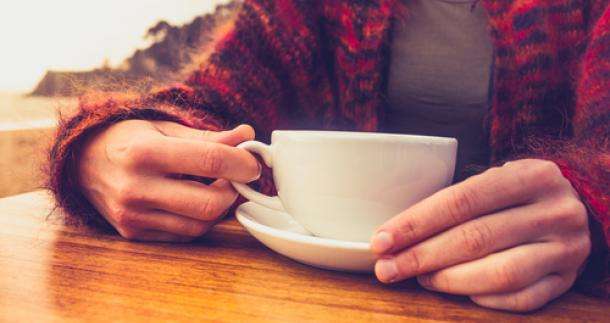Table of Contents
Nearly everyone in recovery drinks coffee. It’s a fixture at AA meetings, along with pastries and cigarettes. It’s commonly said that coffee is just one way recovering alcoholics replace their addiction to alcohol, but is that all it is? There may be some good reasons for drinking coffee in recovery. There may also be some good reasons not to. Here are some things to think about when you’re trying to decide whether to have another cup of coffee or tea.

Download our Brochure
The Pros:
Coffee helps people feel better. The main reason people in recovery say they drink coffee is that they feel better, they’re more alert, and they concentrate better. Depression, insomnia, fatigue, and poor concentration are common early in recovery. An extra cup or two can help you stay alert and focused. The potential drawbacks of caffeine are mild enough that drinking a lot of coffee or tea to moderate the symptoms of post-acute withdrawal is usually a net gain.
Coffee is a convenient substitute. If you are used to having a drink in your hand, you might feel at loose ends without one. Coffee is a decent replacement. It’s also a social replacement. Instead of going for a drink, you can have coffee or tea. It’s a perfectly good excuse to visit and it can make you feel better rather than worse.
Coffee may help protect against disease. Studies have shown that coffee may offer some protection against various diseases. Many of these diseases are the same ones alcohol makes worse. Coffee has been shown to reduce the risk of liver cancer by 50 percent, for example. It has also been shown to reduce the risk of mouth and throat cancer and reduce risk of stroke.

The Cons:
Caffeine can increase anxiety. Some people start drinking as a way to cope with anxiety, especially social anxiety. If this is you, you might want to keep your caffeine consumption low. Caffeine essentially amplifies the mechanisms that cause anxiety, so if your anxiety has gone through the roof since getting sober, try cutting down on the caffeine.
Caffeine may cause heart arrhythmia. Drinking is heard in the heart. It can cause high blood pressure, cardiomyopathy, and arrhythmia. If you have had any of these problems, caffeine can make them worse.
Caffeine can make it harder to sleep. Perhaps the biggest caveat with coffee and tea is that you don’t want to drink it too late. People early in recovery frequently have trouble sleeping already and three cups of coffee just before bed won’t help. If you’re a few months into recovery and your sleep still hasn’t improved, try consuming less caffeine, or at least set a deadline in the early afternoon.
For most people in recovery, coffee or tea is fine and probably helpful. If you already drink coffee or tea regularly, it’s probably not worth the effort to quit or cut down unless you have a specific reason.
Smarmore Castle Private Clinic in County Louth, near Dublin, was founded in 1988 as a residential rehabilitation hospital treating people suffering from drug and alcohol purposes. Smarmore Castle believes in helping patients lead a life of abstinence through 12 Step programs, detox and medical treatment, psychotherapy, and complementary therapies.



